Student Visas and Residence Permits

So you’ve been accepted to study in Malta (congratulations!) – now what? Before you pack the sunscreen, you’ll want to sort out your visa and residence permits.
Visas
Students from most EU countries, the USA, and Commonwealth countries do not require a visa to enter Malta for stays of less than 90 days. You should verify with the nearest Maltese Embassy or Consulate whether you require a visa to enter Malta, and the specific visa requirements for your country.
You can also find a list of countries which require visas for entry to Malta here.
Visas are valid for 90 days, after which non-EU full time students must apply for a uniform residence permit, and EU students must notify the Maltese authorities of the duration of their stay.
Types of Visas
Students who require a visa will apply for a Schengen Type D Long Term/National Visa, or a Schengen Type C Short-Stay Visa.
Students can only apply for Type D visas at Malta’s diplomatic missions or consular posts. Type D visas are valid for the duration of your studies, and you cannot extend your stay once in Malta.
Students can only apply for Type C visas in countries where Malta has no diplomatic post. Type C visas are valid for 90 days, and students must apply for temporary residence permits once in Malta to continue their studies.
Applying for a Visa
You can apply for a visa at your local Maltese Embassy or Consulate.
You can find a list of Maltese Embassies and Consulates here.
All embassies and consulates will require documentation when you apply for a Type D or Type C visa. This documentation may vary from embassy to embassy, therefore it is highly recommended you verify with your country’s embassy or consulate as to their specific requirements. General documentation requirements include:
- The application fee for Type D and Type C visas is €60, payable at the Maltese Embassy or Consulate in your country.
- Documents indicating the purpose of your visit (a letter of invitation from your educational institution, a certificate of enrolment, etc.)
- Documents indicating means of transport and return (a valid return ticket, a certificate of a reserved or prepaid journey, etc.)
- Proof of financial means to support you up to €48/day for the duration of your stay (cash, traveller’s cheques, cheque books for a foreign currency account, credit cards, etc.)
- Documents indicating proof of accommodation (hotel reservation, lease or letting agreement, written declaration by your host, etc.)
- Proof of health insurance for the duration of your stay, which covers repatriation and emergency medical attention, with a minimum coverage of €30,000.
You may also be required to undergo an interview, in person, at your country’s Maltese Embassy or Consulate.
Read more about visas on Malta’s Ministry of Foreign Affairs web site.
Residence Permits
Non-EU Students
Full time students from non-EU countries must apply for a residence permit, which allows them to reside in Malta for the duration of their studies and travel throughout the Schengen area while registered as a student in Malta.
You should apply for a residence permit in person as soon as you arrive in Malta at the Department for Citizenship and Expatriate Affairs. This office is located in the Castille Place building, between Upper Barrakka Gardens and the Auberge de Castille, in Valletta. Go early in the day as the office is open limited hours and lineups can be long.
To apply for a residence permit, fill out an CEA/20 application form, available from your educational institution, or online.
Take this application form, along with the following documents, to the Department for Citizenship and Expatriate Affairs:
- A passport valid for the duration of your studies
- 2 European sized passport photos (3.5 x 4.5 cm)
- Proof of health insurance for the duration of your studies
- A letter of acceptance to your educational institution
- A letter of endorsement from your educational institution
- Proof of payment of tuition to your educational institution
- Proof of financial means of support. According to Malta’s Ministry of Foreign Affairs, “a minimum of 75% of the national minimum wage calculated on a weekly basis for the duration of your studies, plus your tuition fees and return travel costs.” This is approximately €48/day or €17,520/year. Proof of financial means may include bank statements for the last six months, a letter indicating financial support from a sponsor (including proof of their means), etc.
- Proof of residence in Malta (your lease or letting agreement)
- Application fee of €23.29 (it is easiest to pay in cash at the Department for Citizenship and Expatriate Affairs)
You can expect to have a turnaround period of one to several months for your residence permit application. If you wish to travel outside of Malta before your residence permit has been issued, you must return to the Department for Citizenship and Expatriate Affairs to have your passport stamped, allowing you to re-enter Malta following your absence.
Read more about residence permits for non-EU (third country national) students on the Government of Malta web site.
Find more information through the University of Malta’s web site here, including downloadable endorsement letter and CEA/20 forms.
EU Students
While EU students benefit from the right to free movement throughout the EU, full time students from EU countries must notify Malta’s Department of Citizenship and Expatriate Affairs that they will be residing in Malta for more than three months. This office is located in the Castille Place building, between Upper Barrakka Gardens and the Auberge de Castille, in Valletta. Go early in the day as the office is open limited hours and lineups can be long.
Application forms can be obtained from your educational institution, such as the University of Malta. You must also provide:
- Proof of financial means of support. According to Malta’s Ministry of Foreign Affairs, “a minimum of 75% of the national minimum wage calculated on a weekly basis for the duration of your studies…plus return travel costs.” This is approximately €48/day or €17,520/year. Proof of financial means may include bank statements for the last six months, a letter indicating financial support from a sponsor (including proof of their means), etc.
- 2 passport sized photos
- An letter of endorsement from your educational institution
ESL/EFL Students
Non-EU students studying ESL (English as a Second Language) in Malta for less than 90 days may require a visa to enter Malta.
Non-EU students studying ESL for more than 90 days must apply for a residence permit for the duration of their studies (see above).
By Jess Gerrow, who traded city life in Canada for island life in the Mediterranean two years ago. She is a postgraduate marketing student, blogger, and freelance writer.
- My Life Abroad -
A selection of expat stories

"A fun compulsive read!"
J. Matcham, Amazon
"I strongly advise people ready to live abroad to read this book!"
Patrice, Amazon

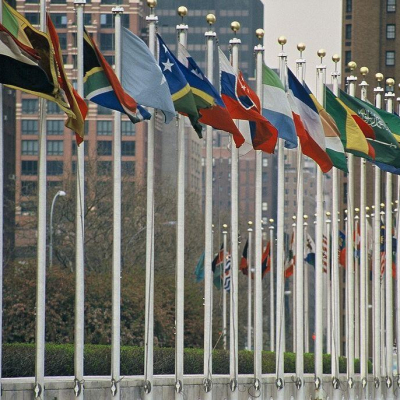 Embassies and Consulates in Malta
Embassies and Consulates in Malta 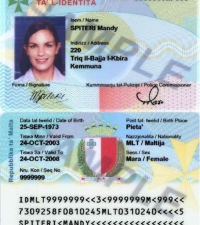 Getting an ID Card
Getting an ID Card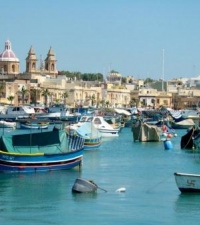 A Visa for Malta
A Visa for Malta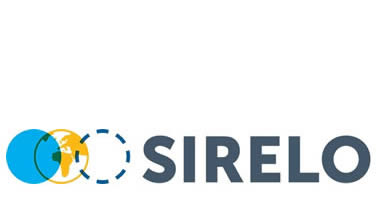
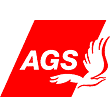 AGS Worldwide Movers
AGS Worldwide Movers Fexco payment solutions
Fexco payment solutions 1stMove Car Shipping
1stMove Car Shipping